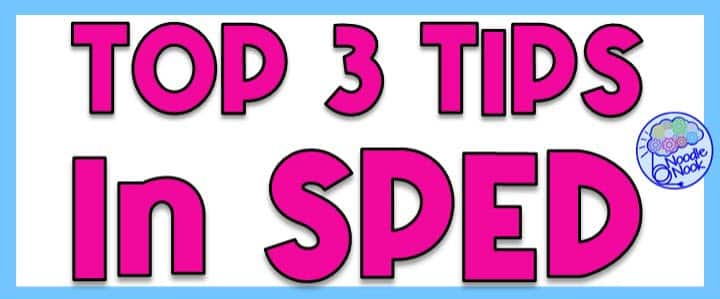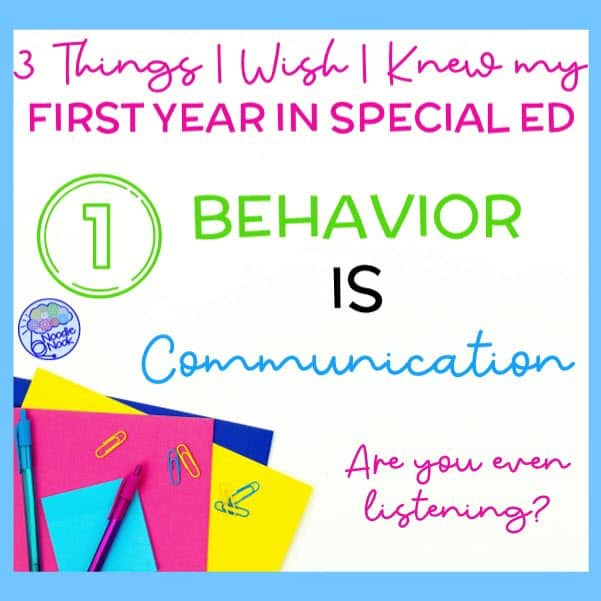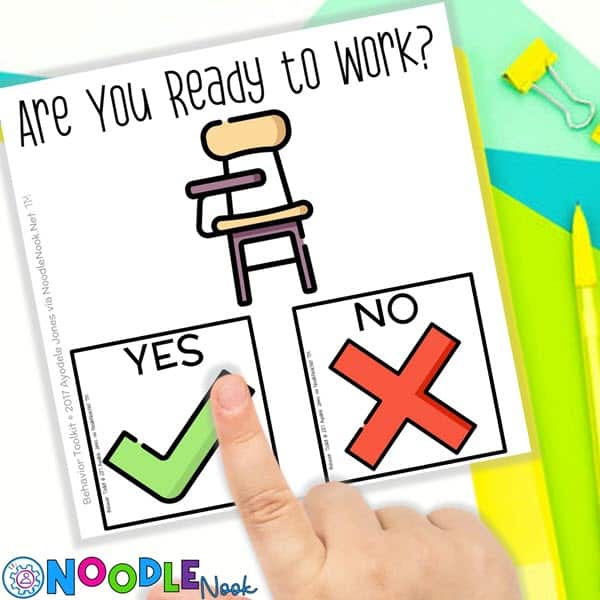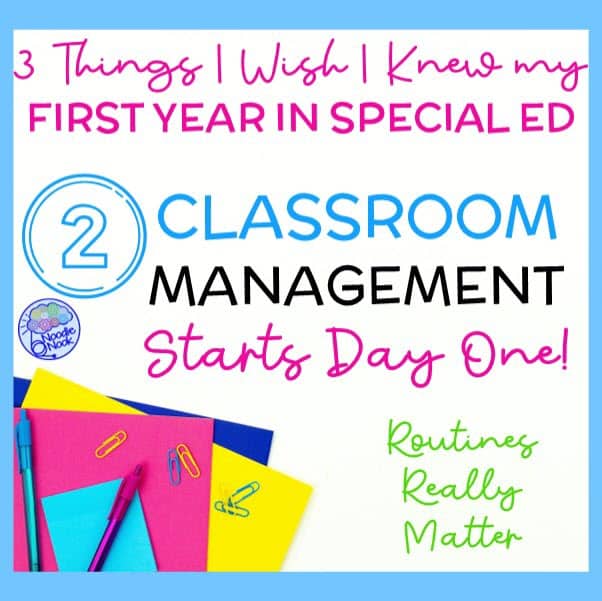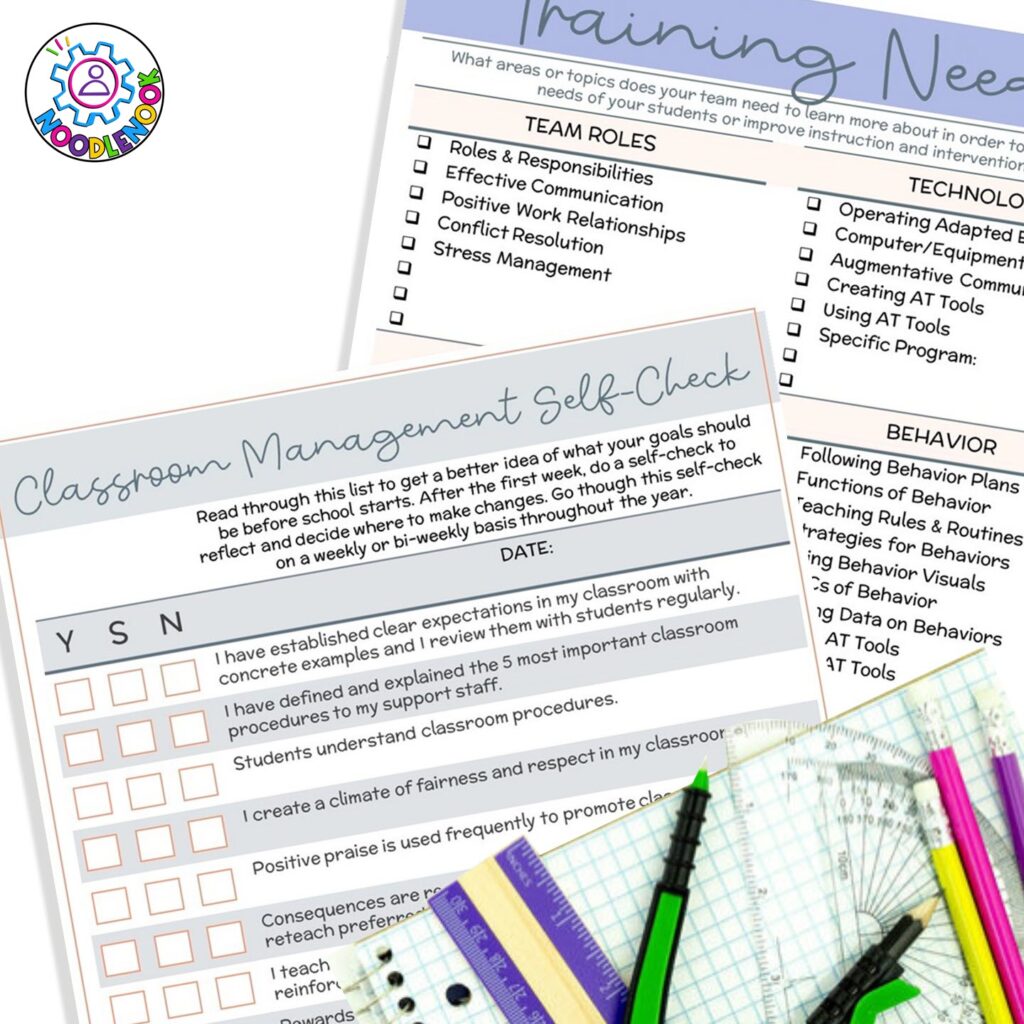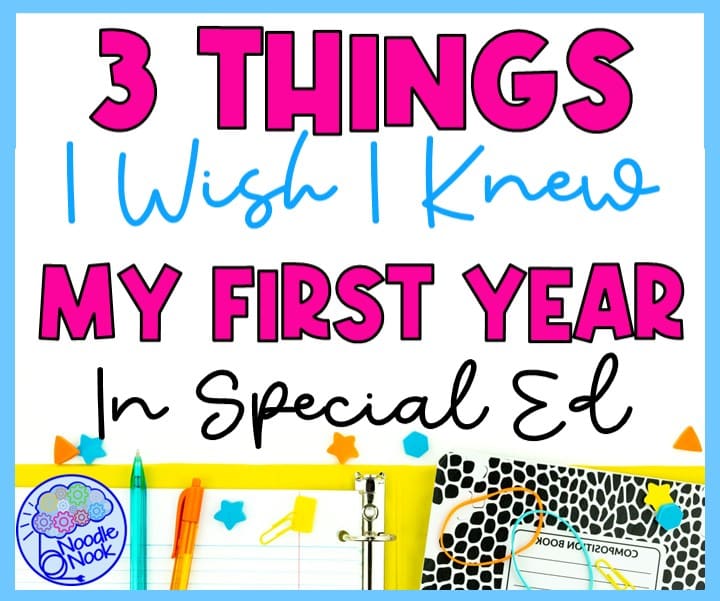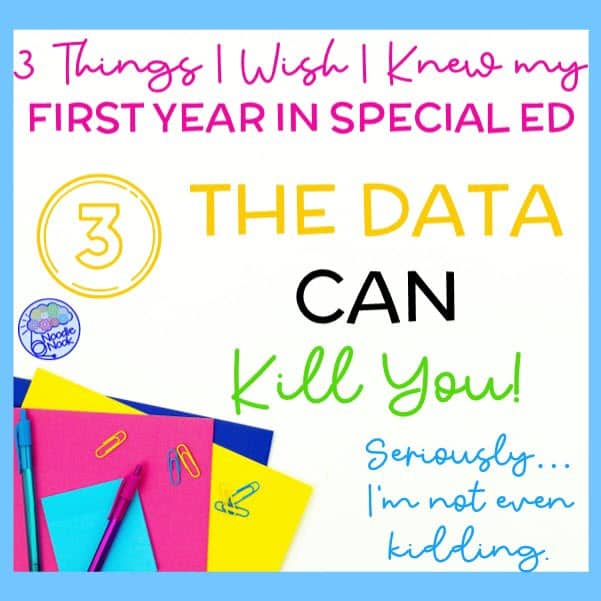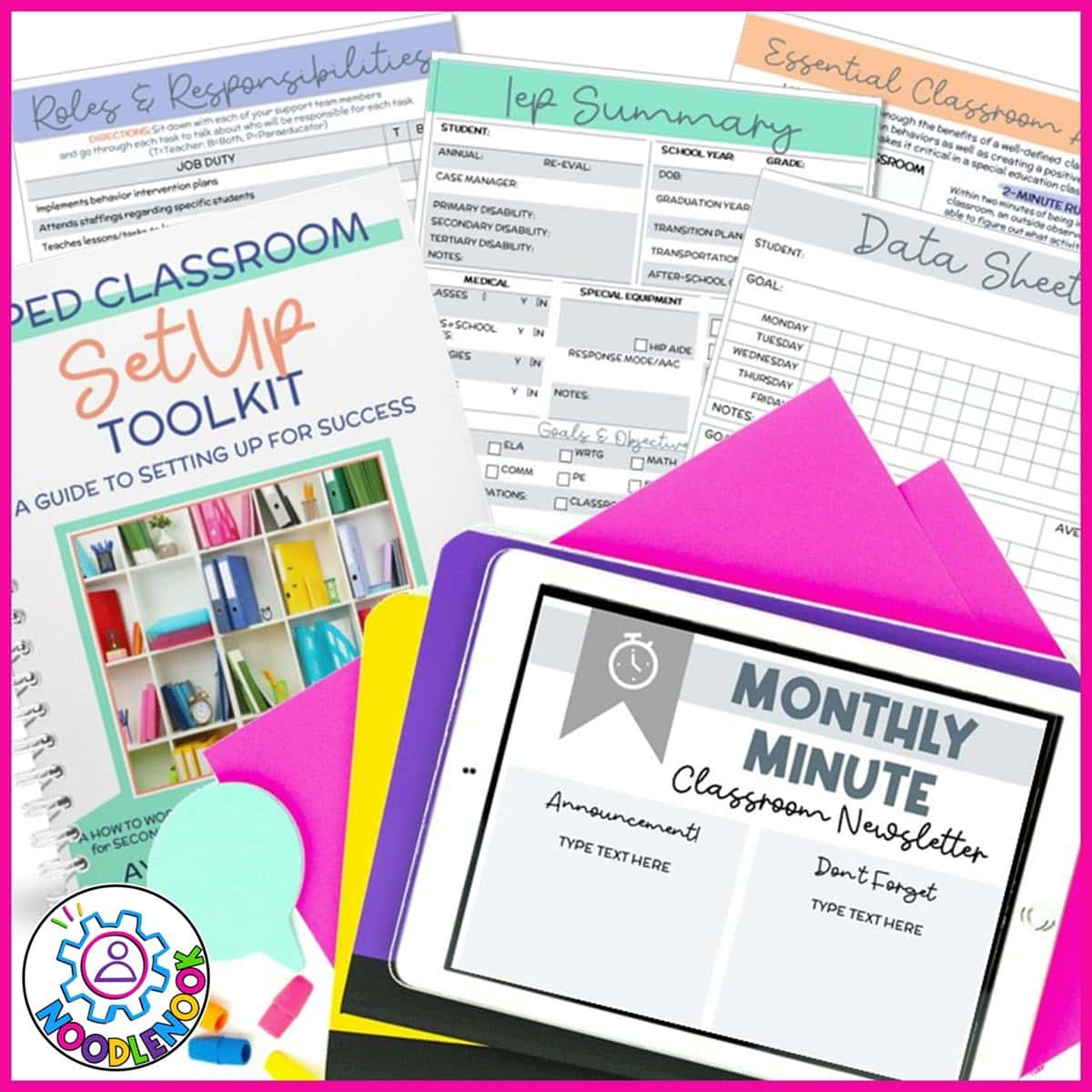Ah, the memories of my first year teaching.
Lying awake at night thinking about the students and, well, all the things. The endless lesson planning and replanning because things didn’t work out like I’d thought they would the day before. And then there was the constant feeling of being thrown into the deep end of a pool carrying a stack of bricks… I mean paperwork. Have you been there?
Looking back, there were a few things I wish I had known before I decorated my classroom and welcomed the students to our class. So, SpEdTacular special education teachers, listen up! Here are the top 3 things I wish I’d known as a first-year teacher with some helpful tips for you:
1) Behavior is communication, so listen up!
2) Classroom management starts on day one, so don’t procrastinate.
3) Data is a beast that needs to be fed and taken care of, or else it will devour you whole.
And, trust me, I learned these things the hard way.
1: Behavior Is Communication
For real… this is the most important thing I wish I knew. Behavior IS Communication!!!
Understanding that every behavior a student exhibits is a form of communication, whether it be positive or negative, can help you better understand their needs and how to support them.
And let me tell you, sometimes it’s hard to figure out what a student is saying. Like, really hard. But don’t worry, I got you!
Here are a few tips for utilizing this understanding in the classroom:
- Observe and take note of student behavior throughout the day, and keep a behavior log. Trust me, you’ll need it to track patterns and triggers, otherwise, you’ll be completely clueless.
- Seek to understand the function of the behavior. Is the student attempting to communicate a need or feeling? Are they seeking attention or trying to avoid a task? You have to know what a student is trying to get to know how to redirect that behavior. Want to read more? Here is a post on function.
- Use positive reinforcement strategies to encourage positive behaviors and communication. Because who doesn’t love a good sticker or a high five? Besides, you cannot change behavior with negativity. Ever. You have to use positivity to make change. #RealTalk
- Address negative behaviors in a calm and consistent manner. Use positive and constructive language, try to understand the underlying reason for the behavior, and address it proactively. And don’t forget to breathe, it’ll help. If you need some behavior visuals to manage it all, these will help.
Remember that every student is unique and may have a different preferred response mode to communicate their needs. Be open to understanding their perspective and work together to find the best solutions.
When a child feels heard and understood, you’re much less likely to have negative behaviors. That means investing time in teaching communication is priceless. PRICELESS!
Start by looking at behaviors as a form of communication. Grab some essential visuals and then teach students more adaptive behavior management. And build a robust communication system or AAC along the way.
2: Classroom Management Starts on Day 1
Classroom management starts on day one: This is something I wish I’d known before my first day of teaching. I was so caught up on all the meetings and organizing the classroom (and trying to read everyone’s paperwork at least once). I ended up running out of time. And my boss was like, “It’s okay. You don’t have to be perfect on the first day. This is a long game.”
That was the thing, though. If you start off strong, you can win the game. If you start off without rules, procedures, and some structure, it’s like losing your queen in the first move of chess. From then on out, you’re struggling.
Tips for Managing the Classroom:
Classroom management is like a game of Tetris, you have to keep stacking those blocks just right… otherwise the whole thing comes crashing down. But don’t worry, I’m here to give you some tips to avoid that inevitable crash and burn.
- Start off strong, and establish clear expectations and rules right from the get-go. It’s like setting the tone for a party. This party theme is Game Night (and we’re out to WIN)!
- Keep your cool, no matter what. Maintaining your composure (like during a game of Jenga), because one wrong move and everything comes tumbling down.
- Be consistent and follow through with your rules. If you aren’t consistent, you’ll lose. #RealTalk
- Give praise and positive reinforcement where it’s due. The more positivity you have, the better. You are a cheerleader working to make everyone feel good.
- Don’t be afraid to ask for help. This is a team effort and tapping into the wealth of knowledge of your team makes managing the classroom easier.
What Now?
Take time to reflect on your classroom management methods and check what you have in place to be successful. There is a lot to get done at the start of the school year, so a checklist like this one helps.
Also, consider what routines and procedures you want to establish in your classroom. You can read more about routines here. Get your classroom management checklist and routines planner in the Ultimate Teacher Planner here:
Classroom management is a game of Catan, not a game of Uno. It takes time, planning, and patience. So, take a deep breath and get ready to play!
3: Data is a BEAST
Data is a beast you have to feed and take care of. I wish I thought of it that way during my first year.
Instead, I always considered it this thing I needed to do sometimes (but often times neglected).
But data is like a pet lion. It needs constant attention and care, or else it’ll turn on you.
So how do you keep that beast at bay?
- Keep track of your data regularly, like feeding your pet every day.
- Organize and label your data. There is nothing worse than not knowing where things are when you need them. Can you imagine not knowing where your pet lion has gone? Yikes!
- Use data to inform your instruction. Data isn’t just paperwork, it’s intel on what your students can do, what they need, and where you can help. Ref that data!
- Don’t be afraid to ask for help or seek resources, like the behavior data sheet set.
Remember, data is there to help you, not to harm you. Just don’t turn your back on it or leave it unattended too long.
Data can be a cuddly pet. Or it can kill you.
Don’t wait to get it all set up and don’t put off collecting it.
RECAP: 3 Things I Wish I’d Known as a First-Year Teacher in Special Ed
There are so many things I wish I could do over, but alas. These are the most important 3things I wish I’d known as a first-year teacher:
- Behavior is communication, so listen up!
- Classroom management starts on day one, so don’t procrastinate.
- Data is a beast that needs to be fed and taken care of, or else it will devour you whole.
With that in mind, I created the Ultimate Teacher Planner and Guide for Special Ed Teachers (or teachers who have students with special ed services). It’s complete with forms, guides, and planners to keep you organized, one step ahead of the game, and ready to take on your first year like a pro. To see more on that, click this link.

